








California Behavioral Health
Verified Center
This provider's information has been quality-checked by Recovery.com's Research Team for accuracy and completeness, including center verification through appropriate third-party organizations.
Treatment Focus
This center treats substance use disorders and co-occurring mental health conditions. Your treatment plan addresses each condition at once with personalized, compassionate care for comprehensive healing.
Primary Level of Care
Offering intensive care with 24/7 monitoring, residential treatment is typically 30 days and can cover multiple levels of care. Length can range from 14 to 90 days typically.
Treatment Focus
This center treats substance use disorders and co-occurring mental health conditions. Your treatment plan addresses each condition at once with personalized, compassionate care for comprehensive healing.
Primary Level of Care
Offering intensive care with 24/7 monitoring, residential treatment is typically 30 days and can cover multiple levels of care. Length can range from 14 to 90 days typically.
Provider's Policy
California Behavioral Health DOES NOT accept state insurance, Medicaid or Medicare. The center offers same-day assessments as part of their admissions process. Their team of enrollment specialists can also check and verify insurance coverage for fast and immediate admissions into our program.
California Behavioral Health
California Behavioral Health
About California Behavioral Health
California Behavioral Health is a dual-diagnosis treatment facility offering private suites and professionals can work remotely during treatment. They help clients gain confidence with their recovery by combining evidence-based therapy with non-12-Step care that considers the whole person – mind, body, and spirit. They offer medication-assisted treatment (MAT), cognitive behavioral therapy (CBT), dialectical behavior therapy (DBT), and eye movement desensitization and reprocessing (EMDR). Holistic options like massage, biofeedback, equine therapy, and meditation are also available.
Powerful, Evidence-Based Treatment
California Behavioral Health empowers each client with well-rounded, individualized care. Their therapists have Master's degrees and years of expertise treating substance use and co-occurring mental health concerns. Their licensed staff applies industry, medical, and personal knowledge to each unique treatment plan. In addition to group sessions, clients have access to multiple 1:1 sessions per week, with the exact amount dependent on their care plan and individual treatment needs. Medication-assisted therapy helps relieve detox symptoms, as needed.
Multiple Paths to Healing
California Behavioral Health uses a combination of evidence-based and non-12-Step holistic options to help break addictive behaviors. They provide psychoeducation to teach clients how addiction and mental health conditions can coincide. Clients can deepen their understanding of triggers, relapses, and other nuances of addiction. Families can join too, with on-site family therapy sessions to connect clients with one of their closest support systems.
Private and Restorative
California Behavioral Health is located near Palm Springs. Clients can enjoy luxury accommodations in a convenient but quiet location. The center has an inviting pool, an exercise room, and an outdoor lounge. Each private room houses one client. Alongside traditional treatment, clients can enjoy holistic activities like equine therapy, art therapy, hiking, and yoga. They also provide well-balanced, chef-prepared meals. California Behavioral Health is accredited by the Joint Commission and accepts most private insurance and private pay. They do not accept Medicaid or Medicare.

Highlights from the Center
Highlights
These highlights are provided by and paid for by the center.
Trauma-Informed Care
Private Rooms Only
Non 12-Step Approach
Tech Friendly
Center Overview
Treatment Focus
This center treats substance use disorders and co-occurring mental health conditions. Your treatment plan addresses each condition at once with personalized, compassionate care for comprehensive healing.
Joint Commission Accredited
The Joint Commission accreditation is a voluntary, objective process that evaluates and accredits healthcare organizations (like treatment centers) based on performance standards designed to improve quality and safety for patients. To be accredited means the treatment center has been found to meet the Commission's standards for quality and safety in patient care.
Recently helped 3 people via Recovery.com
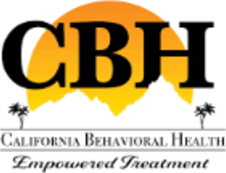
California Behavioral Health
Recently helped 3 people via Recovery.com
Insurance Accepted
Cash Pay Rates
Estimated Cash Pay Rate
Center pricing can vary based on program and length of stay. Contact the center for more information. Recovery.com strives for price transparency so you can make an informed decision.




Recovery.com Verified Listing
Recovery.com verified that the name, location, contact information and license to operate for this treatment provider are valid and up-to-date.

Joint Commission Accredited

Licensed by California DHCS
Recovery.com is an independent, third-party mental health resource. Verification does not imply endorsement and does not guarantee the quality of treatment services.
Meet Your Care Team

Melissa Legere
COO & Co-founder
LMFT

Paul Del Vacchio
CEO & Co-founder

William Donahue
Therapist
Master’s in Clinical Mental Health Counseling

Amber Alvarez
Nursing Supervisor
LVN
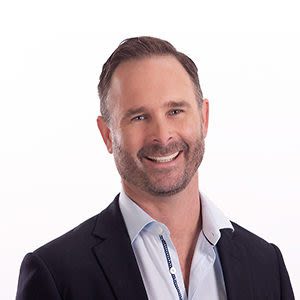
Dr. Christian Small
Psychiatry and Family Medicine
MD

Christine Caballero
Lead LVN

Pat Visgilio
Driver
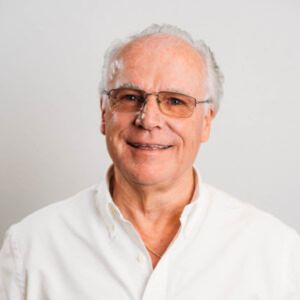
Hedley Green
Operations Director
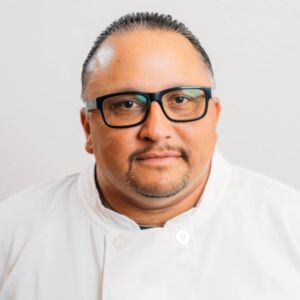
Tony Cisneros
Executive Chef

Leslie Penaloza
Group Facilitator
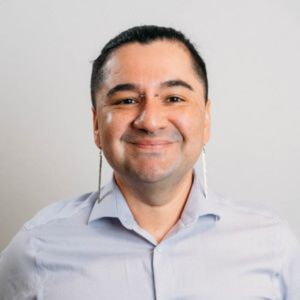
Martin Silva
Therapist

Heather Lyons
Care Manager
Your Care Options
Specializations
Intensive Inpatient
The highest level of care, medically managed intensive inpatient services provides 24-hour nursing and physician care.
Alcohol
Using alcohol as a coping mechanism, or drinking excessively throughout the week, signals an alcohol use disorder.
Detox
Detox fully and safely removes toxic substances from the body, allowing the next steps in treatment to begin with a clean slate.
Co-Occurring Disorders
A person with multiple mental health diagnoses, such as addiction and depression, has co-occurring disorders also called dual diagnosis.
Intensive Outpatient Program
In an IOP, patients live at home or a sober living, but attend treatment typically 9-15 hours a week. Most programs include talk therapy, support groups, and other methods.
Non 12 Step
Non-12-Step philosophies veer from the spiritual focus of the 12-Steps and instead treat the disease of addiction with holistic or secular modalities.
Who We Treat
Older Adults
Addiction and mental health treatment caters to adults 55+ and the age-specific challenges that can come with recovery, wellness, and overall happiness.
Executives
Executive treatment programs typically directly support the needs of people who manage businesses and may provide flexible schedules and office space to allow work during treatment.
Young Adults
Emerging adults ages 18-25 receive treatment catered to the unique challenges of early adulthood, like college, risky behaviors, and vocational struggles.
LGBTQ+
Addiction and mental illnesses in the LGBTQ+ community must be treated with an affirming, safe, and relevant approach, which many centers provide.
Men and Women
Men and women attend treatment for addiction in a co-ed setting, going to therapy groups together to share experiences, struggles, and successes.
Midlife Adults
For adults ages 40+, treatment shifts to focus on the unique challenges, blocks, and risk factors of their age group, and unites peers in a similar community.
Professionals
Busy, high-ranking professionals get the personalized treatment they need with greater accommodations for work, privacy, and outside communication.
Treatment Services
Day Treatment
In a PHP, patients live at home but follow an intensive schedule of treatment. Most programs require you to be on-site for about 40 hours per week.
Intensive Inpatient
The highest level of care, medically managed intensive inpatient services provides 24-hour nursing and physician care.
Detox
Detox fully and safely removes toxic substances from the body, allowing the next steps in treatment to begin with a clean slate.
Intensive Outpatient Program
In an IOP, patients live at home or a sober living, but attend treatment typically 9-15 hours a week. Most programs include talk therapy, support groups, and other methods.
Outpatient
During outpatient rehab, patients attend a structured treatment program while continuing to live at home.
Residential
In a residential rehab program, patients live onsite, with access to daily treatment and 24-hour care. An average stay is 30-90 days.
Approaches
Evidence-Based
A combination of scientifically rooted therapies and treatments make up evidence-based care, defined by their measured and proven results.
Holistic
A non-medicinal, wellness-focused approach that aims to align the mind, body, and spirit for deep and lasting healing.
Non 12 Step
Non-12-Step philosophies veer from the spiritual focus of the 12-Steps and instead treat the disease of addiction with holistic or secular modalities.
Personalized Treatment
The specific needs, histories, and conditions of individual patients receive personalized, highly relevant care throughout their recovery journey.
Therapies
1-on-1 Counseling
Patient and therapist meet 1-on-1 to work through difficult emotions and behavioral challenges in a personal, private setting.
Meditation & Mindfulness
A practiced state of mind that brings patients to the present. It allows them to become fully aware of themselves, their feelings, and the present moment.
Mindfulness Therapy
This ancient practice can be mental, emotional, and even spiritual. In meditation, you focus your attention on the present moment without judgement.
Art Therapy
Visual art invites patients to examine the emotions within their work, focusing on the process of creativity and its gentle therapeutic power.
Equine Therapy
Guided interactions with trained horses, their handler, and a therapist can help patients improve their self-esteem, trust, empathy, and social skills.
Experiential Therapy
With this approach, patients heal by doing. Therapists help patients process difficult emotions to speak, using guided activities like art or dance.
Eye Movement Therapy (EMDR)
Lateral, guided eye movements help reduce the emotional reactions of retelling and reprocessing trauma, allowing intense feelings to dissipate.
Conditions We Treat
Anxiety
Anxiety is a common mental health condition that can include excessive worry, panic attacks, physical tension, and increased blood pressure.
Bipolar
This mental health condition is characterized by extreme mood swings between depression, mania, and remission.
Burnout
Burnout entails mental and physical exhaustion, and leads to a severe lack of fulfillment. This condition is often caused by overwork.
Depression
Symptoms of depression may include fatigue, a sense of numbness, and loss of interest in activities. This condition can range from mild to severe.
Post Traumatic Stress Disorder
PTSD is a long-term mental health issue caused by a disturbing event or events. Symptoms include anxiety, dissociation, flashbacks, and intrusive thoughts.
Trauma
Some traumatic events are so disturbing that they cause long-term mental health problems. Those ongoing issues can also be referred to as "trauma."
Substances We Treat
Alcohol
Using alcohol as a coping mechanism, or drinking excessively throughout the week, signals an alcohol use disorder.
Benzodiazepines
Benzodiazepines are prescribed to treat anxiety and sleep issues. They are highly habit forming, and their abuse can cause mood changes and poor judgement.
Chronic Relapse
Consistent relapse occurs repeatedly, after partial recovery from addiction. This condition requires long-term treatment.
Co-Occurring Disorders
A person with multiple mental health diagnoses, such as addiction and depression, has co-occurring disorders also called dual diagnosis.
Cocaine
Cocaine is a stimulant with euphoric effects. Agitation, muscle ticks, psychosis, and heart issues are common symptoms of cocaine abuse.
Drug Addiction
Drug addiction is the excessive and repetitive use of substances, despite harmful consequences to a person's life, health, and relationships.
Ecstasy
Ecstasy is a stimulant that causes intense euphoria and heightened awareness. Abuse of this drug can trigger depression, insomnia, and memory problems.
Heroin
Heroin is a highly addictive and illegal opioid. It can cause insomnia, collapsed veins, heart issues, and additional mental health issues.
Psychedelics
Hallucinogenic drugs—like LSD—cause euphoria and increased sensory experiences. When abused, they can lead to depression and psychosis.
Languages
Aftercare
Care Designed for Your Needs
Personal Amenities
Amenities
Special Considerations
Executive Program
Addiction and mental health treatment for executives typically involves high discretion, greater technology access, and more private, 1-on-1 care.
Flexible technology policies
Centers with flexible technology policies allow professionals to stay in touch with work and give patients a greater sense of connection and normalcy.
Gender-specific groups
Patients in gender-specific groups gain the opportunity to discuss challenges unique to their gender in a comfortable, safe setting conducive to healing.
Healthy Meals are provided
Great food meets great treatment, with providers serving healthy meals to restore nutrition, wellbeing, and health.
Activities
Yoga
Yoga is both a physical and spiritual practice. It includes a flow of movement, breathing techniques, and meditation.
Off-Site Activities
Yoga
Yoga is both a physical and spiritual practice. It includes a flow of movement, breathing techniques, and meditation.
Off-Site Amenities
Recently helped 3 people via Recovery.com
Learn More About the Center
Client Testimonials
Read testimonials from California Behavioral Health’s alumni.
Take a Photo Tour
See more of California Behavioral Health and their peaceful surroundings.
The Admission Process
Learn more about the 3-step admission process at California Behavioral Health.
What to Expect During Treatment
California Behavioral Health details what to expect at their addiction treatment center.
What people are saying
Treatment
4.8
Accommodations
4.8
Food & Nutrition
4.8
Value
4.7
Pros
- Friendly & Competent Staff (56)
- Excellent & Effective Treatment Programming (51)
- Fun Activities (51)
- Treated With Respect (50)
Cons
- Not Enough Time With Therapist (11)
- Limited Time to Work (5)
- Poor Internet Connection (3)
- Generalized Program (3)
Sara
Treatment in 2025 • (45 days) • Reviewed 07/21/25
Former Client
•Financial Analyst
•Seattle, WA
Sam F
Treatment in 2024 • (30 days) • Reviewed 11/15/24
Former Client
•California
EM
Treatment in 2025 • (30 days) • Reviewed 06/03/25
Former Client
JM
Treatment in 2025 • (30 days) • Reviewed 05/23/25
Former Client
•RN
•Pacific Northwest
Jen
Treatment in 2025 • (30 days) • Reviewed 04/24/25
Former Client
•Registered Nurse
•GA





